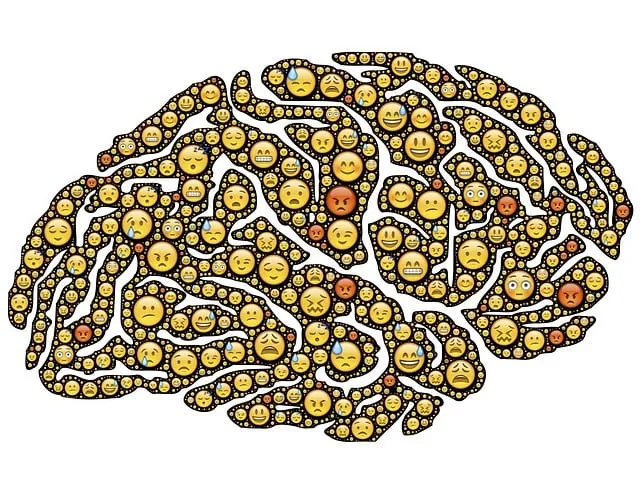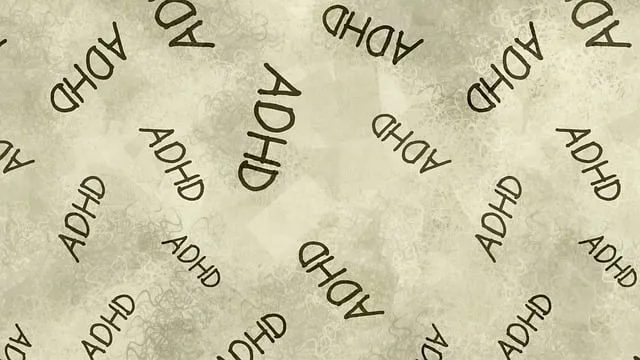Mood regulation, crucial for emotional balance and overall well-being, involves managing feelings in response to life situations. Kaiser Permanente emphasizes a multi-faceted approach including CBT, mindfulness, and medication via their dedicated helpline and resources like the Mental Wellness Podcast Series. Cultural competency training for providers fosters an inclusive environment while helping individuals identify triggers, keep journals, and practice cognitive techniques to transform negative thought patterns. Proactive self-care through structured routines, exercise, mindfulness, balanced diets, sleep, and social connections enhances resilience, improves coping strategies, and leads to a fulfilling life. The Kaiser Permanente mental health number Superior stands out as a valuable resource in navigating emotional challenges.
Mood regulation is a vital aspect of emotional well-being, and effective strategies can transform lives. This comprehensive guide explores various techniques to achieve emotional balance, specifically targeting resources available through Kaiser Permanente, one of the superior healthcare providers known for its mental health services. From understanding mood dynamics to identifying triggers and adopting cognitive techniques, we provide a holistic approach to self-care, empowering individuals to take control of their mental health with proven lifestyle interventions.
- Understanding Mood Regulation: Unraveling Emotional Balance
- Kaiser Permanente Mental Health Resources: A Comprehensive Guide
- Identifying Triggers: Recognizing Patterns for Better Management
- Cognitive Techniques: Shaping Your Mind for Stability
- Lifestyle Interventions: Nurturing Well-being Through Daily Choices
Understanding Mood Regulation: Unraveling Emotional Balance

Understanding mood regulation is a crucial step towards achieving emotional balance, an essential aspect of overall well-being. It involves recognizing and managing one’s feelings in response to various life situations. According to Kaiser Permanente mental health professionals, this process requires a multifaceted approach, often incorporating strategies like cognitive behavioral therapy (CBT), mindfulness practices, and sometimes medication under the guidance of your healthcare provider.
The concept goes beyond simply masking emotions; it focuses on fostering resilience and healthy coping mechanisms. This journey can be enhanced through cultural competency training for healthcare providers, ensuring an empathetic and tailored support system. The Mental Wellness Podcast Series Production has played a significant role in popularizing emotional healing processes, making them more accessible to folks seeking guidance on navigating their moods effectively.
Kaiser Permanente Mental Health Resources: A Comprehensive Guide

Kaiser Permanente offers a robust array of mental health resources designed to support individuals in managing their emotional well-being. The organization’s commitment to comprehensive care is evident through its extensive network of professionals and accessible services. For those seeking guidance, the Kaiser Permanente mental health number stands as a superior resource, connecting people with expert advisors who can provide tailored support.
Beyond individual therapy, Kaiser Permanente promotes resilience building and depression prevention through various initiatives. Their healthcare provider cultural competency training equips staff to offer sensitive, effective care to diverse populations. By fostering an inclusive environment, these programs aim to enhance the overall mental health landscape, ensuring that everyone has access to the tools needed to navigate life’s challenges with greater ease.
Identifying Triggers: Recognizing Patterns for Better Management

Identifying triggers is a crucial step in managing your mood and overall emotional well-being. By recognizing patterns that lead to adverse mental health reactions, individuals can proactively navigate challenging situations. According to Kaiser Permanente mental health resources, this process involves keeping a journal to track emotions, behaviors, and events. Note when you feel particularly stressed, anxious, or depressed, and try to identify any recurring themes or triggers. This self-awareness is the first step towards effective depression prevention and emotional regulation.
Understanding your unique triggers can empower you to make informed decisions about your mental health. For instance, if certain people, places, or activities consistently negatively impact your mood, you may choose to limit exposure to these triggers. Similarly, Mental Health Awareness advocates for early intervention by recognizing subtle changes in mood and behavior. By being attuned to your emotional responses, you can develop strategies to manage triggers effectively, ultimately improving your quality of life and overall mental health.
Cognitive Techniques: Shaping Your Mind for Stability

Cognitive Techniques offer powerful tools to shape your mind and regulate mood. These strategies, recommended by experts at Kaiser Permanente mental health number Superior, focus on challenging negative thought patterns and replacing them with more positive, balanced perspectives. By cultivating compassion towards oneself and others—a key aspect of Compassion Cultivation Practices—individuals can reduce stress and anxiety, enhancing emotional resilience.
Incorporating burnout prevention strategies for healthcare providers into daily life is crucial. Developing a structured self-care routine, including mindfulness practices, regular exercise, and adequate sleep, are essential components. These habits not only support better mental health but also foster a sense of calm and clarity, enabling individuals to navigate challenging situations with greater ease and resilience.
Lifestyle Interventions: Nurturing Well-being Through Daily Choices

Maintaining a balanced mood involves more than just managing stress; it’s deeply tied to our daily choices and overall well-being. Lifestyle interventions play a pivotal role in nurturing mental health, offering a holistic approach that complements professional support like the Kaiser Permanente mental health number. Simple yet powerful habits can significantly impact our emotional state. Regular exercise, for instance, releases endorphins known as “feel-good” hormones, promoting positive moods and reducing symptoms of depression and anxiety. Similarly, mindful practices such as meditation and deep breathing exercises have been shown to enhance mental wellness, according to the Public Awareness Campaigns Development efforts that highlight Stress Reduction Methods.
Incorporating a balanced diet, adequate sleep, and meaningful social connections into daily routines also contributes to robust mental health. These lifestyle choices create a supportive environment where individuals can better navigate life’s challenges. By prioritizing self-care through these interventions, folks can foster resilience, improve coping mechanisms, and ultimately, lead more fulfilling lives, benefiting from both the Mental Wellness Podcast Series Production and their own proactive efforts in managing mood regulation.
Mood regulation is a multifaceted process that, when mastered, can significantly enhance overall well-being. By understanding emotional balance and employing strategies like identifying triggers, cognitive techniques, and lifestyle interventions, individuals can navigate life’s challenges more effectively. For those seeking professional support, Kaiser Permanente offers comprehensive mental health resources, including the superior guidance provided by their dedicated team. Remember that managing mood is a journey, and with the right tools and mindset, achieving emotional stability becomes an achievable goal.






